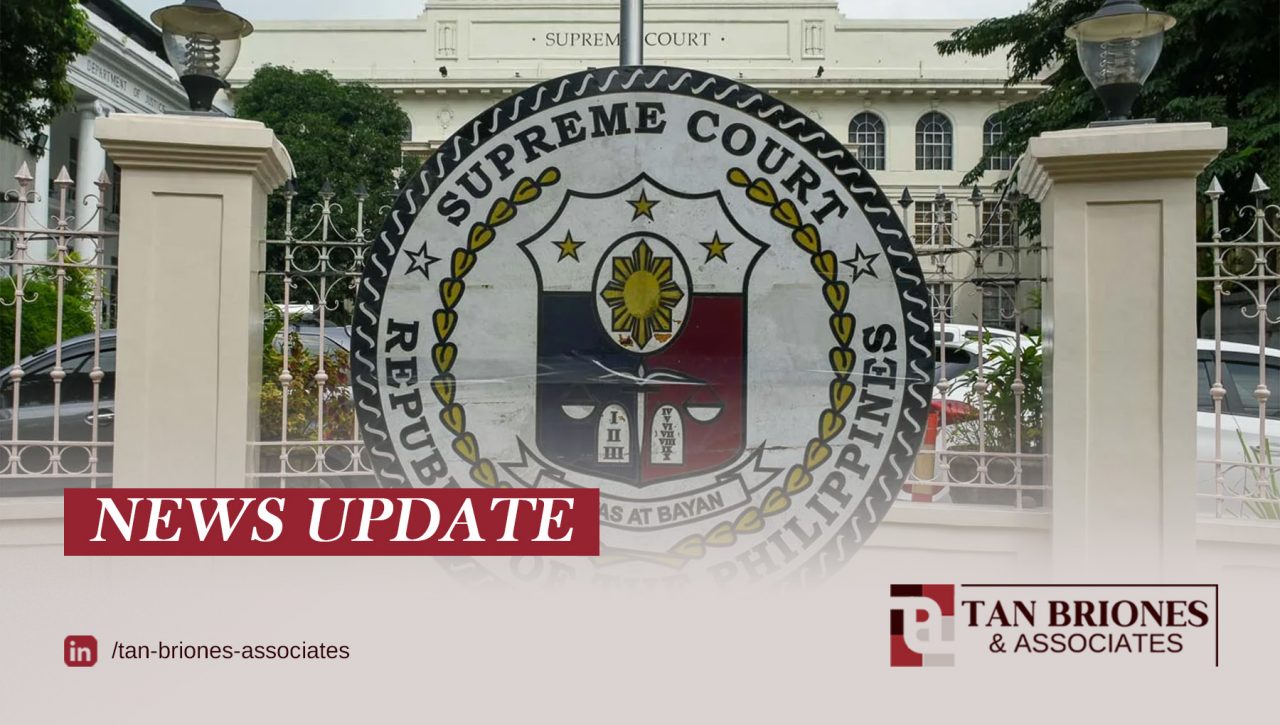
The Supreme Court (SC) has issued a writ of kalikasan to stop the construction of the Samal Island-Davao City Connector (SIDC) Bridge following claims that the project is causing serious and irreversible damage to coral reefs in Davao Gulf.
In a session on July 1, the SC En Banc ordered the respondents to file a verified return within a non-extendible period of 10 days upon service of the writ.
The writ of kalikasan was issued against the Department of Public Works and Highways (DPWH), the Department of Environment and Natural Resources (DENR), the Samal Island Protected Landscape and Seascape Protected Area Management Board, and the China Road and Bridge Corporation
The court also referred the petitioners’ prayer for a temporary environmental protection order (TEPO) to the Court of Appeals in Cagayan de Oro for appropriate action.
Under the Rules of Procedure for Environmental Cases, a writ of kalikasan may be issued when environmental damage of such magnitude prejudices the life, health, or property of inhabitants in two or more cities or provinces.
The petition, filed by environmental planner Carmela Marie Santos, environmental lawyer Mark Peñalver, and the Sustainable Davao Movement, seeks to stop the SIDC project’s construction, citing “actual, serious, and irreversible damage” to the coral reefs in Paradise Reef, Samal Island, and in the Hizon Marine Protected Area (MPA) in Davao City.
The petition argues that these damages violate the constitutional right to a balanced and healthful ecology.
“The destruction of the coral reefs in the Davao Gulf poses an actual threat to the thriving of local communities,” the petition states, adding that “if the coral reefs that have been relied upon by peoples and ecosystems for centuries would die, it is a tragedy—where the powerful, the State itself, plays god.”
The petitioners allege that the SIDC bridge construction has already led to coral reef destruction through offshore drilling, anchoring of barges, and the installation of structures directly over coral habitats, which they describe as critical to local fisheries, ecotourism, and natural coastal protection against storms.
The petition cites studies documenting the presence of endangered species such as giant clams and various coral species in the affected areas, including a 15,000-square-meter reef system in Paradise Reef described as “one of the few healthy reefs in Davao Gulf.”
The petition also notes that alternative bridge alignments were available that would have spared the coral reefs but were not pursued.
“Why insist on an alignment that more directly impacts the coral reefs in Paradise Reef and in Hizon MPA if there were alternatives that had less direct impact?” petitioner Santos previously wrote in communications cited in the case.
According to the petition, repeated attempts to seek administrative remedies and dialogues with government agencies were met with delayed or no response, prompting the petitioners to bring the matter before the Supreme Court as a last resort.
The SIDC Bridge is a 3.98-kilometer project linking Davao City and Samal Island, intended to improve transportation and economic connectivity in the region.
In earlier statements cited in the petition, the DPWH has said that disturbances during construction would have “a negative but temporary effect” on coastal habitats, while denying that there was sufficient cause to halt the project.
Follow Tan Briones & Associates on LinkedIn for more legal updates and law-related articles.







